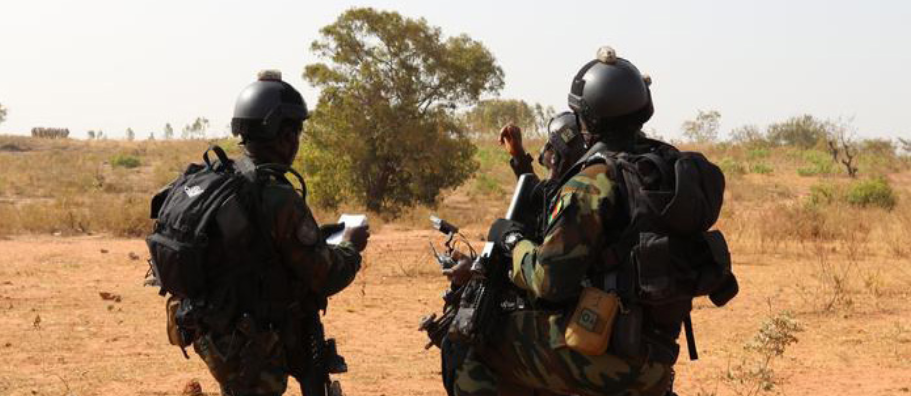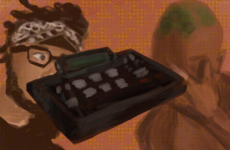
Photo Courtesy of DW News
With the recent coup d’état in Ouagadougou, Burkina Faso, the U.S. finds itself in an awkward position — having to condemn yet another U.S. trained African coup leader. The United States has a longstanding policy of foreign intervention, tracing its roots to the 19th century, with economic expansion as its primary aim. The 20th century saw continued U.S. intervention, but national security provided the main rationale. In the 21st century, the U.S. continued to intervene in many West African countries — militarily, diplomatically, and economically — to aid in its counter-terrorism efforts. But these operations have largely resulted in failure and embarrassment for the U.S. Military.
In 2016, U.S. Special Operation Forces teams provided training to Burkina Faso’s security forces — assisting the Burkinabe military in clearing roads of bombs, setting up police checkpoints, and repairing potholes. These measures made it harder for terrorists to plant explosives and trained Burkinabe military in border security as well as first aid. In addition to the military training, the U.S. armed its charges with the necessary equipment; in this case, M4 rifles. While the intention of recent U.S. intervention in West Africa has chiefly been to thwart terrorist activities, supporting civilian-led governments has been an ulterior objective.
Since 2016, however, there have been hundreds of militant attacks in Burkina Faso. While jihadi groups like Al Qaeda and the Islamic State have claimed responsibility for some of the major attacks, the rest remain a mystery. Given the lack of any evidence to support religious motivations, members of a now disbanded elite military unit, outfitted and trained by the U.S., are suspected. Their primary goal is to destabilize the civilian-led government, and it appears the strategy worked.
On January 23, 2022, Lieutenant Colonel Paul-Henri Sandaogo Damiba and the Burkina Faso Army seized power, deposed democratically elected President Roch Marc Christian Kabore, closed the borders, and effectively dissolved the country’s civilian government. The military justified its takeover by noting that discontent had been brewing since August of 2021, and citizens were deeply angered by the government’s handling of so called “jihadist” attacks in the country. In response, civilians lined the streets in the capital city of Ouagadougou, showing their support for military control to address the Islamist militants who, it is said, have taken over much of the country and forced its citizens to adhere to Islamic law.
After the Burkina Faso coup, U.S. State Department spokesman Ned Price said of the situation in Burkina Faso, “We condemn these acts and call on those responsible to deescalate the situation, prevent harm to President Kabore and any other members of his government in detention, and return to civilian-led government and constitutional order.” He continued, “The United States is closely monitoring this fluid situation, and we call for restraint by all actors as we carefully review the events on the ground for any potential impact on our assistance.”
To directly address the actions taken by Lt-Col Damiba, the U.S. Air Force, which had been helping the Burkina Faso Air Force with intelligence, surveillance, and reconnaissance, paused its assistance.
In response to a similar coup, which occurred in Mali during August of 2020, the U.S. State Department cut off its $65 million in security assistance and halted military intelligence sharing, while the Department of Defense withdrew its $30 million in counterterrorism assistance. Mali has also been hit with economic sanctions, including flight bans and asset freezes. A similar response from the U.S. is expected in the case of Burkina Faso. Reacting to yet another recent coup, this time in Guinea during September of 2021, the State Department issued the following statement, “The United States condemns today’s events in Conakry,” and added, “These actions could limit the ability of the United States and Guinea’s other international partners to support the country as it navigates a path toward national unity and a brighter future for the Guinean people.”
While these appear to be reasonable actions in response to the recent West African coups, the United States must recognize that these revolutionaries were the product of US training. Burkina Faso’s new leader, Lt-Col Damiba, is an experienced and highly regarded Burkinabe soldier and received much of his counterterrorism training from the U.S. Africa Command (AFRICOM). In Guinea, U.S. Green Berets were conducting military exercises under Colonel Mamady Doumbouya when he and his soldiers left their weekend training and headed to the capital, Conakry, to stage a coup overthrowing the aging President, Alpha Condé. Similarly, Colonel Assimi Goita, a Malian officer and regular participant in U.S.-led military training exercises, used his U.S. acquired counterterrorism skills to oust President Ibrahim Boubacar Keita.
To assist West African counter-terrorism efforts while simultaneously attempting to foster stability in the region, it appears that U.S. intervention is breeding soldiers who stage military coups against democratically elected civilian-led governments. Lauren Woods, director of the Security Assistance Monitor, at the not-for-profit Center for International Policy stated, “…we need to do a much better job thinking about the long-term risks — including coups and abuses by forces we train.” Of the spate of American-trained coup stagers, National Defense University professor, Jeffrey Meiser said, “I can’t help but wonder if simply imprinting our foreign students with the ‘American program’ is counterproductive and unethical.”




